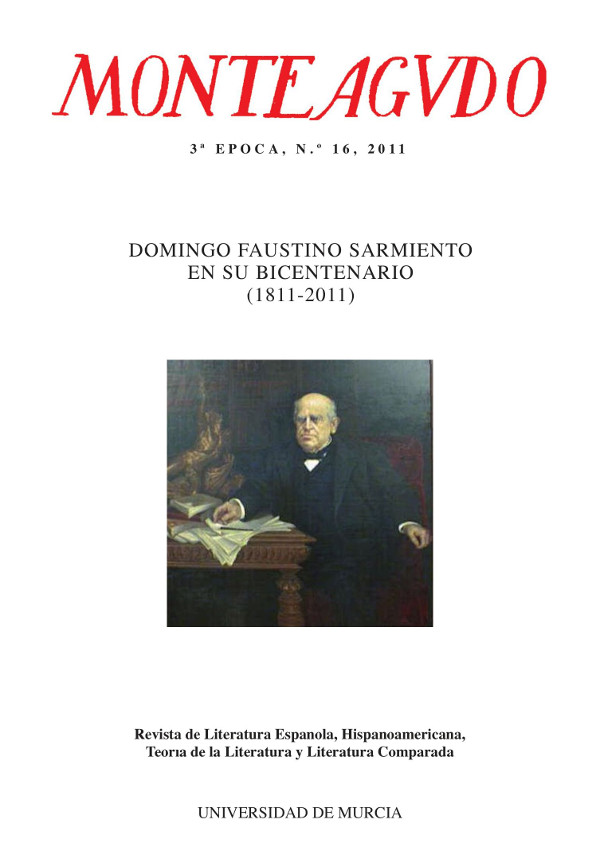Sarmiento, el orientalismo y la biografía criminal: Ali Pasha de Tepelen y Juan Facundo Quiroga
Abstract
In 1843 Vicente López published his first historical fiction in El Progreso, a daily newspaper that he edited with Sarmiento. His feuilleton, “Alí-Bajá,” was on the Albanian pasha Ali of Tepelen, and it was written to illuminate the theme of the orientalist painting exhibited in Santiago by the French artist Monvoisin. Following this lead, the article defends the possibility that one of the Celebrated Crimes by Dumas père, “Ali Pacha,” was known to both López and Sarmiento in 1843, but that they decided not to use it as part of their project to explain Monvoisin’s paintings to their readership. However, Sarmiento may have had it in mind, as a model for the genre of criminal biography, when he wrote his most famous book two years later.Downloads
Download data is not yet available.
Metrics
Views/Downloads
-
Abstract683
-
PDF (Español (España))380
Garrels, E. (2011). Sarmiento, el orientalismo y la biografía criminal: Ali Pasha de Tepelen y Juan Facundo Quiroga. Monteagudo. Revista De Literatura Española, Hispanoamericana Y Teoría De La Literatura, (16), 59–79. Retrieved from https://revistas.um.es/monteagudo/article/view/231171
Artículos
The works published in this journal are subject to the following terms:
- The Publications Service of the University of Murcia (the publisher) retains the property rights (copyright) of the published works, and encourages and allows their reuse under the license of use indicated in point 2.
© Publications Service, University of Murcia, 2011
- The works are published in the electronic edition of the journal under a Creative Commons Attribution-NonCommercial-NoDerivatives 3.0 Spain license (legal text). They may be copied, used, distributed, transmitted and publicly displayed, provided that: i) the authorship and the original source of their publication (journal, publisher and URL of the work) are cited; ii) they are not used for commercial purposes; iii) the existence and specifications of this license of use are mentioned.







